ACCESS! 2025 Day 1 Recap: Meeting the Moment and Navigating Uncertainty
The opening day of Access! 2025 set the stage for an urgent and forward-looking discussion on the state of the generics and biosimilars industry. Against the backdrop of major news events—including the Trump administration’s proposed and paused tariffs, and Robert F. Kennedy Jr.’s nomination as HHS Secretary passing out of Senate committee—the conference tackled the challenges and opportunities ahead for manufacturers, policymakers, and patients alike.
From market dynamics to legislative reform to the evolving pharmacy landscape, the day’s speakers provided a candid assessment of the industry’s triumphs, struggles and a call to action for meaningful change.
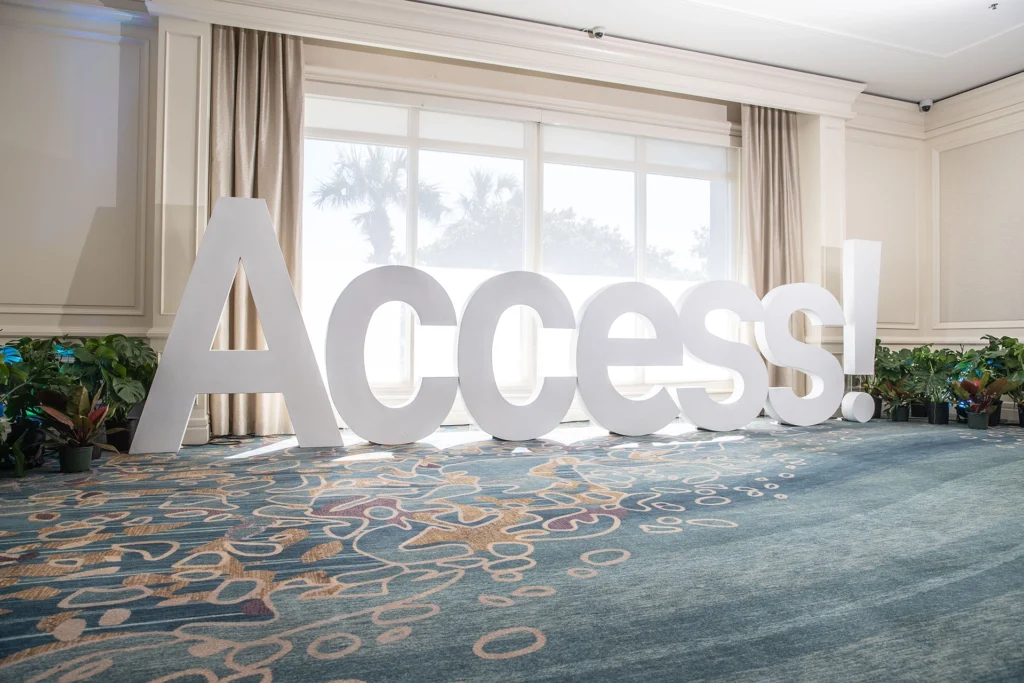
Restoring the Social Contract in Pharmaceuticals
AAM President & CEO John Murphy III opened the conference with a clear-eyed look at the fragile state of the generics and biosimilars market. Generics now account for over 90% of prescriptions filled but only 13% of drug spending, yet manufacturers are struggling against unsustainable pricing models, regulatory hurdles, and growing market distortions caused by bureaucracy and middlemen.
Murphy emphasized the need to restore the balance of the prescription medicines social contract, which once ensured both innovation and long-term competition to drive affordability. AAM introduced a suite of regulatory and legislative priorities designed to make the market more sustainable, improve reimbursement structures, and ensure that generic and biosimilar medicines remain an accessible and cost-saving option for patients. However, looming trade policies are threatening stability. Proposed tariffs on pharmaceutical ingredients, if implemented without carveouts, could further disrupt supply chains and worsen drug shortages—an issue that was revisited throughout the day.
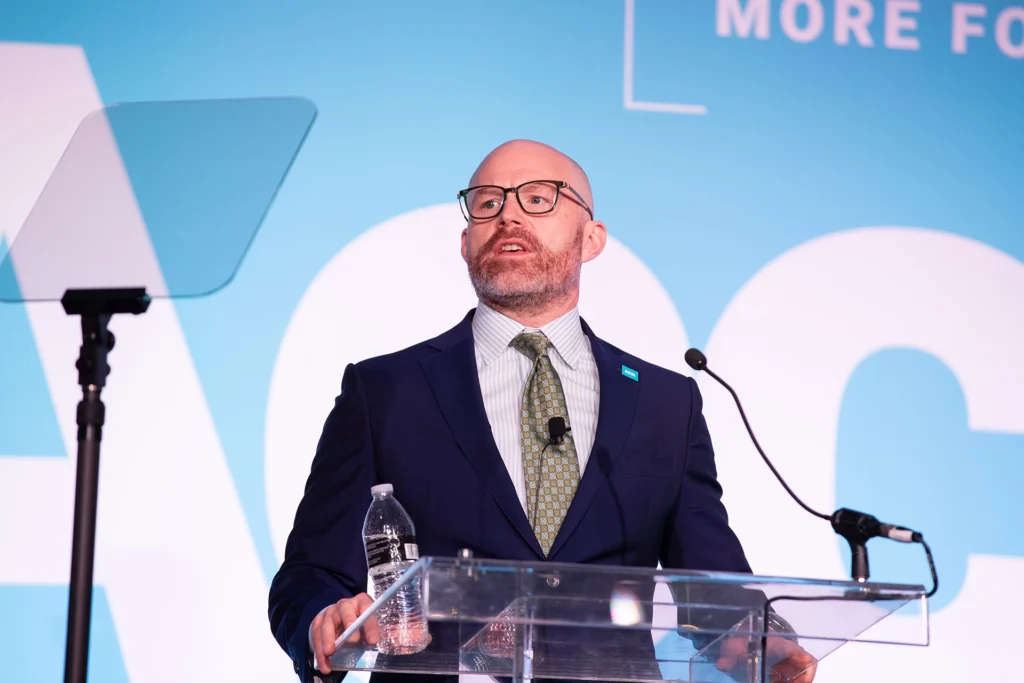
Dr. Marc Siegel on Drug Shortages, Trade, and PBMs
Dr. Marc Siegel delivered a sobering keynote on the growing crisis of drug shortages and the potential impact of trade policy on the pharmaceutical supply chain. He pointed to the Trump administration’s proposed tariffs on pharmaceutical ingredients and warned that broad-stroke trade policies could worsen supply chain vulnerabilities.
Siegel also highlighted the role of Pharmacy Benefit Managers (PBMs) in driving up drug costs, citing new reports that expose how PBMs pocket a disproportionate share of drug spending through markups and spread pricing. He noted that:
- 63% of specialty generics dispensed by PBM-affiliated pharmacies had markups exceeding 100%, with some exceeding 1,000%.
- PBMs extracted $8.7 billion in revenue through spread pricing between 2017-2022.
On drug shortages, Siegel emphasized the need for more domestic manufacturing incentives and better risk management planning, particularly for critical medicines like cancer treatments, antibiotics, and insulin. He called for a “pharmaceutical carveout” from tariffs to protect access to essential medicines.
While Siegel acknowledged that generics remain one of the greatest success stories in modern medicine, he warned that if regulatory and economic pressures continue unchecked, patients will ultimately pay the price.
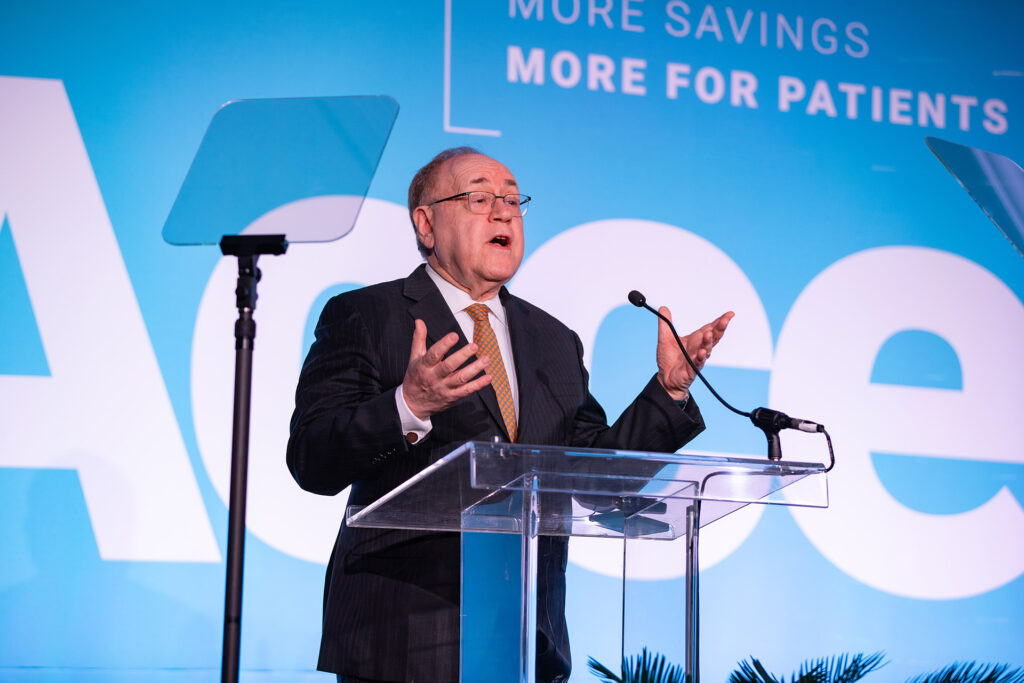
A Wake Up Call for Biosimilars
The Biosimilars Council’s Craig Burton and IQVIA’s Murray Aitken provided an in-depth analysis of the biosimilars market, warning of a potential pullback from manufacturers due to continued regulatory and market access barriers.
IQVIA’s latest report “Assessing the Biosimilars Void in the U.S.” painted a sobering picture: while biosimilars have delivered over $36 billion in savings, their long-term viability is at risk. Manufacturers are struggling to gain formulary placement and favorable reimbursement terms, discouraging future investment. The panel underscored the need for policy adjustments to prevent stagnation and ensure biosimilars remain a viable and competitive alternative to branded biologics.
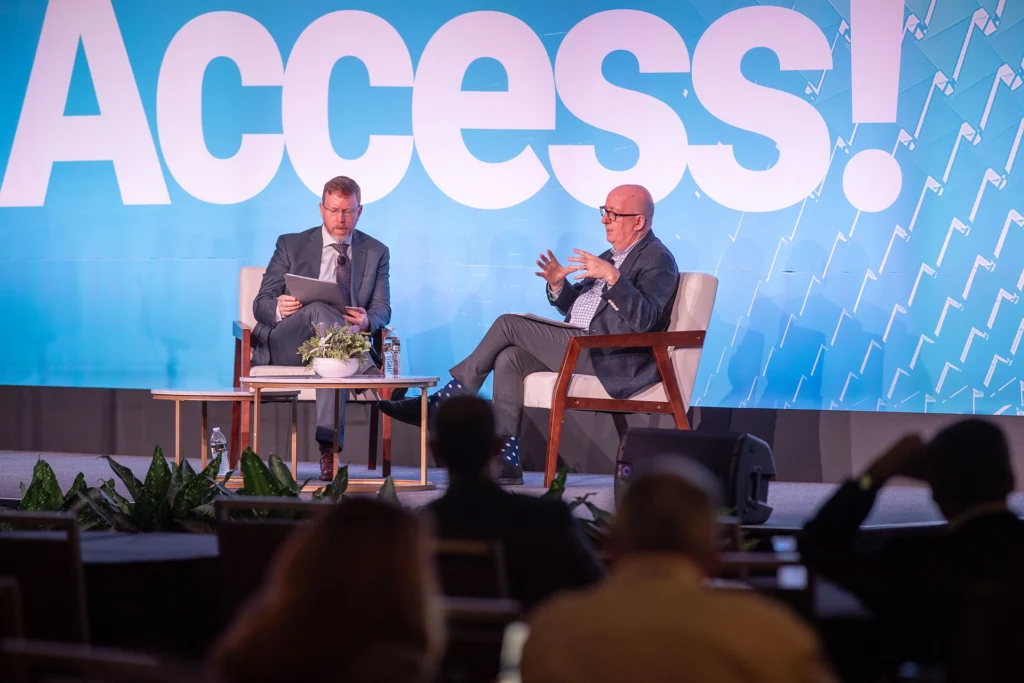
Political Landscape: A Demand for Change
The political panel dissected the significance of the recent election, noting that voter frustration with the status quo has created both risks and opportunities for industry advocates.
The discussion highlighted the growing MAHA (“Make America Healthy Again”) movement, which is reshaping policy conversations around drug pricing, healthcare access, and competition. Panelists stressed the need to reframe industry messaging to align with voter priorities and the administration’s direct, results-driven approach to governance.
PBM reform emerged as a central legislative priority, with panelists pointing to growing momentum behind efforts to restructure rebate models and enhance transparency in pharmaceutical pricing. The consensus: PBM reforms are coming—it’s a question of when, not if.
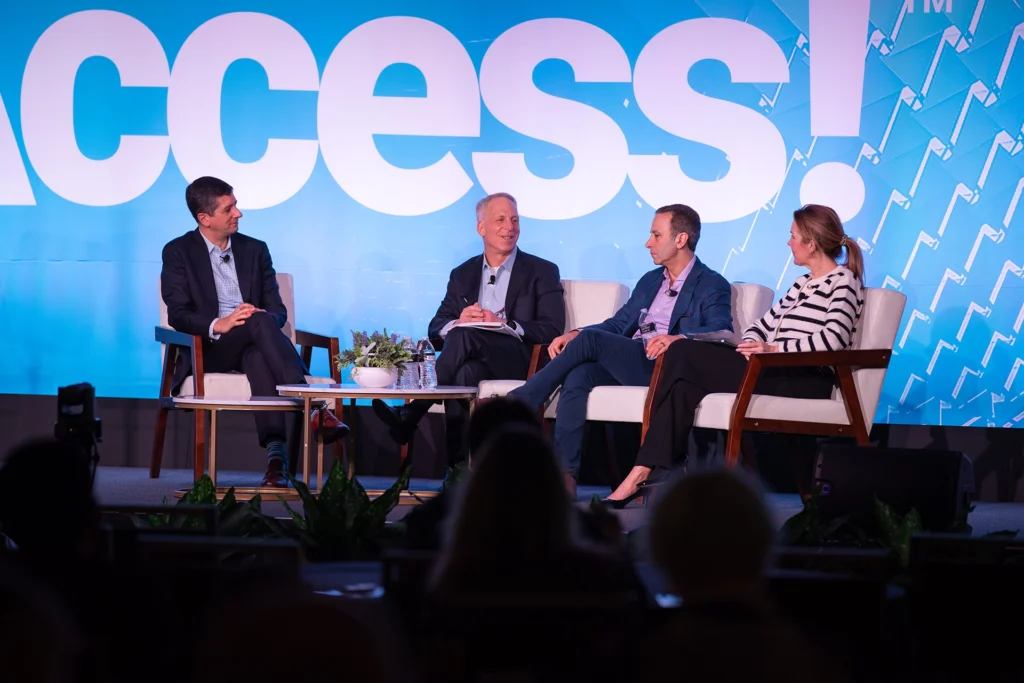
Market Insights & The Future of Pharmacy
A data-driven session led by Doug Long of IQVIA provided a granular look at pharmaceutical market trends, emphasizing key supply chain challenges, pricing pressures, and shifts in prescribing behaviors. As drug shortages persist and reimbursement models tighten, manufacturers must navigate an increasingly complex economic landscape.
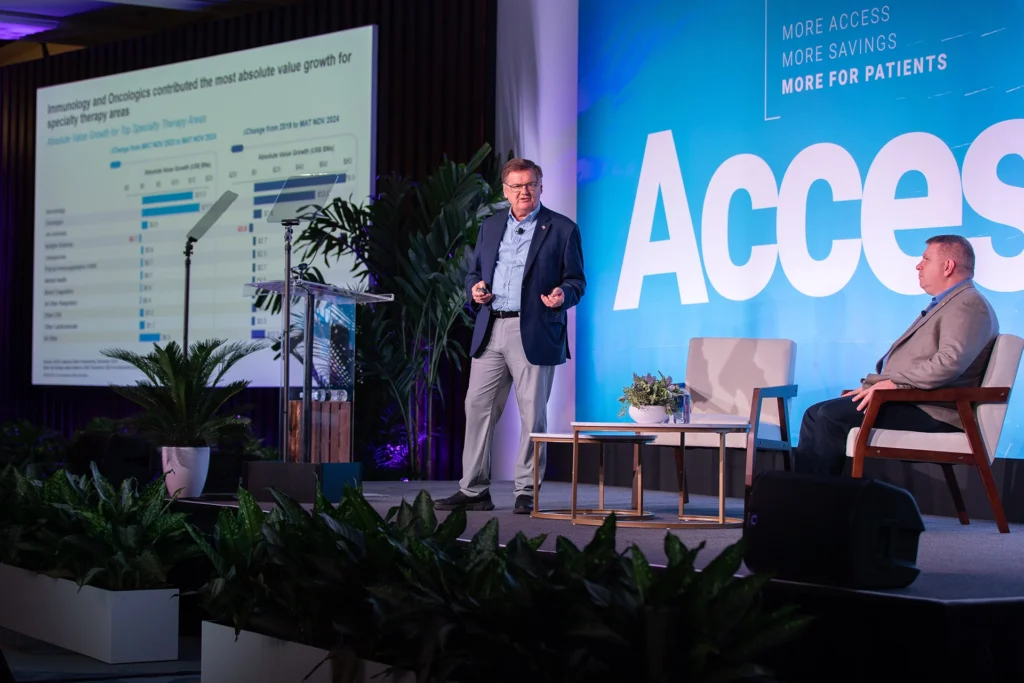
The evolving pharmacy sector was another key theme of the day, explored in a fireside conversation with John Lavin (Stellus Rx) and Michael Sargent (AAM). The session tackled how retail, specialty, and mail-service pharmacies must adapt to shifting payer dynamics and consumer expectations.
Panelists emphasized that there is no one-size-fits-all model for the pharmacy of the future. To remain competitive, pharmacies must balance:
- Reimbursement pressures, as declining margins threaten financial viability.
- Workforce shortages, making it harder to deliver high-quality care.
- Changing patient demands, with greater emphasis on convenience, digital solutions, and at-home services.
As payers, PBMs, and pharmacies explore new network models and contracting structures, those who innovate and adapt to consumer needs will be best positioned for long-term success.
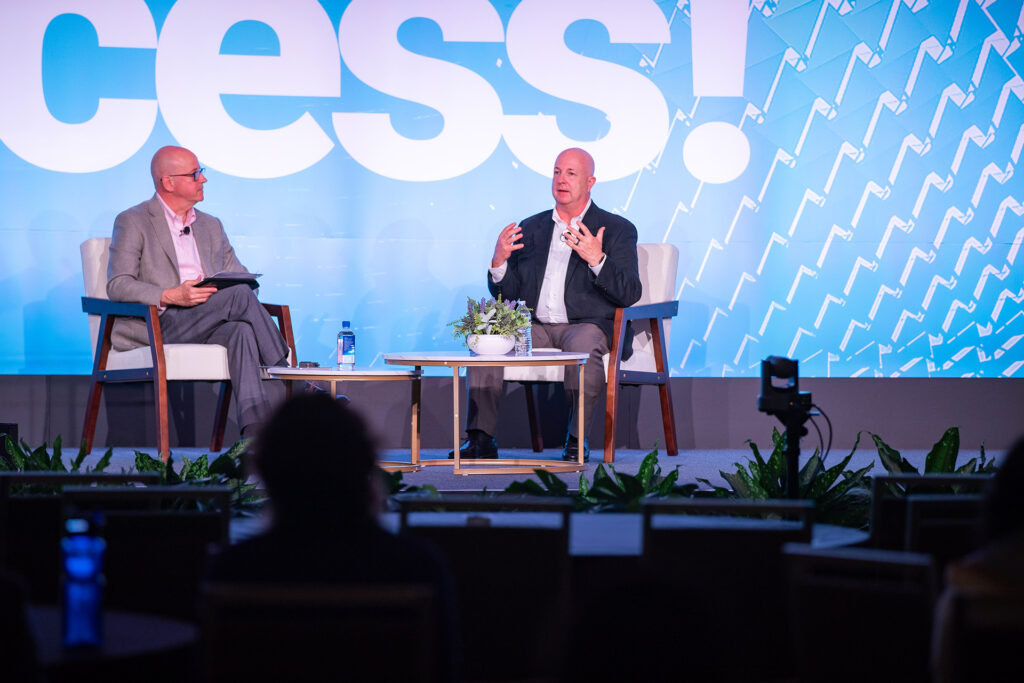
Looking Ahead: Industry Advocacy & Action
As Access! 2025 wrapped up its first day, a clear message emerged: the generics and biosimilars industry is mobilized and moving aggressively to meet the moment and expand access to affordable, reliable medicine.
With a politically charged environment, a shifting economic landscape, and renewed policy momentum, stakeholders must act decisively to protect affordability, stabilize supply chains, and push for reforms that sustain the industry’s future and ensure patient access to lower-cost medicines.


